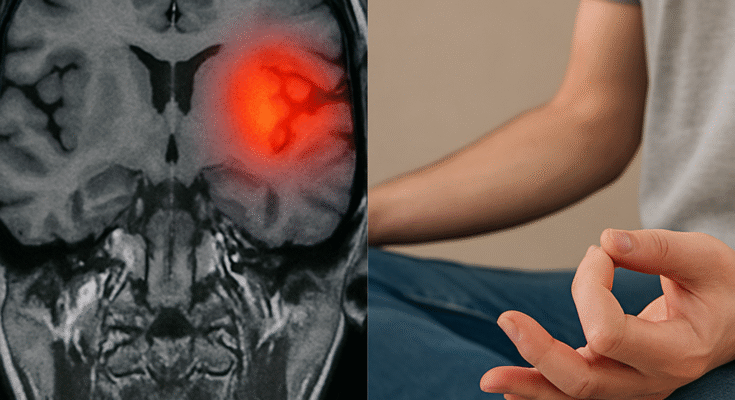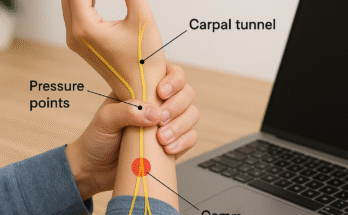Understanding Hand Tremors: Causes, Treatments, and Practical Solutions
Hand tremors—those involuntary, rhythmic shakes—are a common experience, even among healthy individuals. While temporary trembling often accompanies daily stress, fatigue, anxiety, or nervous tension, persistent tremors that don’t subside with emotional calm should never be ignored. These could signal an underlying medical condition requiring a detailed clinical evaluation. So, what causes hand tremors, and how can they be managed? Let’s explore the science, solutions, and strategies to address this unsettling phenomenon.
What Causes Hand Tremors?
Hand tremors arise from a variety of factors, ranging from lifestyle habits to neurological disorders. Here’s a breakdown of the most common triggers:
-
Caffeine Overload
That third cup of coffee might be doing more harm than good. Excessive consumption of caffeine-rich drinks like coffee, tea, or energy drinks can overstimulate the nervous system, leading to shaky hands. -
Blood Sugar Crashes
When blood sugar levels drop below normal, the body enters survival mode, often triggering tremors as a warning sign. Skipping meals or irregular eating patterns can exacerbate this. -
Aging and Essential Tremor
As we age, many develop essential tremor, a benign condition causing shakes during activities like writing or reaching for objects. Though not linked to serious illness, it can be hereditary and worsen over time. -
Alcohol Withdrawal
For chronic drinkers, sudden abstinence can lead to withdrawal symptoms, including pronounced tremors. These shakes are the body’s plea for the substance it’s grown dependent on. -
Stress and Emotional Fatigue
Daily pressures—whether from work, relationships, or financial worries—can strain the nervous system, manifesting as physical tremors. -
Medication Side Effects
Certain drugs, including asthma medications, antidepressants, and stimulants, list tremors as a potential side effect. Always review prescription labels with your doctor. -
Neurological Disorders
Conditions like Parkinson’s disease (characterized by rhythmic “pill-rolling” tremors) and Wilson’s disease (a rare genetic disorder causing copper buildup) require specialized diagnosis and care.
How to Treat and Manage Hand Tremors
While tremors can feel disruptive, many strategies exist to reduce their impact. The right approach depends on identifying the root cause:
1. Embrace Calm: Stress Reduction Techniques
If stress is the culprit, relaxation becomes medicine. Practices like deep breathing, yoga, or mindfulness can soothe an overactive nervous system. Even a 10-minute daily meditation session can work wonders.
2. Rethink Your Diet and Habits
-
Cut Back on Caffeine: Gradually reduce coffee, energy drinks, or black tea. Opt for herbal alternatives like chamomile or peppermint.
-
Balance Blood Sugar: Eat small, frequent meals rich in protein, fiber, and complex carbs. Almonds, Greek yogurt, or whole-grain toast stabilize glucose levels.
-
Stay Hydrated: Dehydration worsens tremors. Aim for 8–10 glasses of water daily.
3. Medication Adjustments
If a prescribed drug is causing tremors, consult your doctor. They may adjust dosages or switch medications—never alter treatment without professional guidance, as abrupt changes can trigger withdrawal symptoms.
4. Explore Medical Therapies
-
Beta-Blockers: Drugs like propranolol are often prescribed to calm essential tremors.
-
Anti-Seizure Medications: Gabapentin or primidone may help regulate nerve activity.
-
Botulinum Toxin Injections: For severe cases, targeted Botox injections can temporarily paralyze overactive muscles.
-
Surgical Options: Deep brain stimulation (DBS) implants are reserved for tremors resistant to other treatments, such as advanced Parkinson’s.
5. Ground Yourself: Reducing Electrical Sensitivity
Prolonged exposure to screens or electronics can heighten bodily “static.” Take regular breaks from devices, and try grounding techniques:
-
Soak feet in warm saltwater for 15 minutes daily.
-
Walk barefoot on grass or sand to discharge excess energy.
6. Nutritional Support
Boost intake of magnesium (found in spinach, almonds, and avocados) and vitamin B12 (from eggs, fish, or fortified cereals). These nutrients support nerve function and muscle control.
7. Spiritual and Emotional Wellness
For many, spiritual practices offer solace. Reciting calming verses from religious texts, like the Quran’s Surah Al-Fatiha or Ayat al-Kursi, can provide mental peace. Similarly, prayer or mindfulness meditation fosters emotional resilience.
8. Social Connection
Isolation amplifies anxiety, which fuels tremors. Engage in group activities—join a book club, volunteer, or take a fitness class. Face-to-face interaction reduces stress and builds confidence.
9. Avoid Triggers
Identify and limit exposure to people or situations that spark anger or tension. Practice assertive communication to set boundaries and protect your mental health.
When to See a Doctor
While lifestyle changes help many, persistent tremors demand professional evaluation. Seek immediate care if you experience:
-
Sudden onset of severe shaking
-
Tremors spreading to other body parts
-
Accompanying symptoms like slurred speech, dizziness, or muscle weakness
A neurologist may conduct blood tests, MRI scans, or electromyography (EMG) to rule out conditions like Parkinson’s or multiple sclerosis.
Final Thoughts: Empowerment Through Action
Hand tremors don’t have to control your life. By understanding their origins and adopting targeted strategies—whether cutting back on caffeine, embracing mindfulness, or seeking medical support—you can regain stability and confidence. Remember, small steps lead to steady progress.





